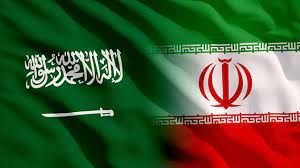Asad Ali Shah
On Friday, March 10, 2023, Kingdom of Saudi Arabia (KSA) and Iran announced the resumption of diplomatic relations after a seven-year hiatus. Ali Shamkhani, secretary of Iran’s Supreme National Council, and Musaad bin Mohammed, Saudi Arabia’s security adviser, struck a deal in Beijing recently with People’s Republic of China served as the mediator. According to the agreement made between the Middle Eastern countries, each will reciprocate by opening embassies in the other’s country.
Also, the two nations decided to resume their cooperation and security pact, which was first inked in 1998 and 2001, respectively. The accord will have a significant impact on Middle Eastern politics, global politics, and the Muslim Ummah since both nations have participated in proxy warfare in places like Yemen, Syria, Lebanon, etc.
Relations between the Kingdom of Saudi Arabia and Iran have been strained since the Iranian Islamic Revolution in 1979. However, the relationship became increasingly tense with the Arab Spring, which witnessed pro-democracy uprisings against tyrants in the Middle East and Northern Africa. They were both supporters of opposing political parties.
Similarly, Saudi Arabia and the United States joined forces in Syria to depose Iran-backed President Bashar al-Assad. They all contributed to opposing parties and were involved in proxy warfare all over the place. In 2016, the KSA executed Nimr Baqir al-Namr, a renowned Shia preacher, for seeking foreign intervention in the Kingdom of Saudi Arabia. As a result, huge protests erupted in Iran, culminating in an attack on the Saudi embassy in Tehran, leading to rupture of diplomatic ties between Riyadh and Tehran.
Yet, the latest agreement seems poised to put an end to the decade-long conflict. The resumption of relations will have a huge influence on the Middle East. And it has the potential to end all of the problems and instability that many gulf countries are currently facing as a result of the proxy wars between Riyadh and Tehran.
Both nations may agree on a wide range of topics, including an inclusive setup in Yemen, Syria, and other places. Additionally, both Riyadh and Tehran are capable of putting a stop to foreign intervention in the Middle East, such as that of the United States and Russia. In addition, both oil-rich countries can help rebuild war-torn countries like Yemen and Syria.
Despite all of these hopes, some observers assert that the arch rival’s elevation to the position of archangel after normalisation of relations would be challenging because both nations have engaged in proxy conflicts all over. And bridging the trust gap between Saudi Arabia and Iran will require a lot of work. But here it is worth mentioning that China will try her best to make the deal successful and bring both countries come closer.
In addition, the news of the restoration of ties between Saudi Arabia and Iran has alarmed Israel, which has plans to unify the Arab world against Iran. It was “a total and deadly failure of the Israeli government’s foreign policy,” according to Yair Lapid, the head of the opposition in Israel.
Furthermore, the deal was mediated by China, demonstrating the country’s recent renunciation of its position of neutrality in international affairs and its adoption of the role of World leader. According to some commentators, China’s mediation of an agreement between long time Gulf enemies is “a broader symptom of a changing global order”.
Aside from this, China imports 36% of its energy from the Middle East and has extensive bilateral economic links with Gulf Cooperation Council worth USD 160 billion as of 2020. It was also challenging for China to act jointly in the Gulf States under such conditions. The only answer was to bring them together, which China has tried to by brokering agreement.
The accord between Saudi Arabia and Iran provides Pakistan with the opportunity to strengthen its economic ties with Iran and contribute positively to the two Islamic countries’ reconciliation. Pakistan had historically been hesitant to capitalise on its advantageous location and cultivate trade connections with Tehran because to its later position in the Middle East and probable pressure from the KSA. It is now free to define its own foreign policy while prioritising its own interests.
In conclusion, normalising relations between Riyadh and Tehran benefits nations; it also will benefit the Middle East in general and the Muslim Ummah in particular. This agreement should be the first step towards the Middle East’s future rapprochement, with further progress achieved on all outstanding issues between the two countries. Yet, much need to be done in the years to come in order to achieve prosperity and peace in the conflict laden Middle East.
asadalishah456@gmail.com







